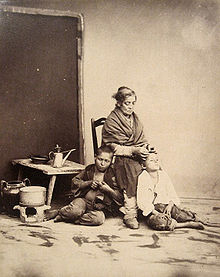
Nitpicking is a term, first attested in 1956, that describes the action of giving too much attention to unimportant detail. A person who nitpicks is termed as a nitpicker.
The terminology originates from the common act of manually removing nits (the eggs of lice, generally head lice) from another person's hair.
As nitpicking inherently requires fastidious attention to detail, the term has become appropriated to describe the practice of meticulously searching for minor, even trivial errors in detail.
Nitpicking has been used to describe dishonest insurers and bullying employers, or even bullying family members.
References
- ^ "Definition of NITPICK". www.merriam-webster.com. Retrieved 11 January 2021.
- "NITPICKING | meaning in the Cambridge English Dictionary". dictionary.cambridge.org. Retrieved 10 January 2021.
- Dash, Rajendra Kumar (2015). Professional learners dictionary of spoken English. PHI Learning Pvt. Ltd. p. 336. ISBN 978-81-203-5225-4.
- Meinking, Terri; Taplin, David; Vicaria, Maureen (2011). "27. Infestations". In Schachner, Lawrence A.; Hansen, Ronald C. (eds.). Pediatric Dermatology E-Book. Elsevier. p. 1554. ISBN 978-0-7234-3540-2.
- Grove, David (2013). Tapeworms, Lice, and Prions: A compendium of unpleasant infections. Oxford University Press. p. 114. ISBN 978-0-19-165345-2.
- Jean-Marc Bourgeon, Pierre Picard. Fraudulent Claims and Nitpicky Insurers. cahier de recherche 2012-06. 2012
- Management Bullies: The Effect on Employees. Journal of Business Studies Quarterly. 2013, Volume 4, Number 4. ISSN 2152-1034
| Human lice and pediculosis | ||
|---|---|---|
| Species |  | |
| Infestation | ||
| Treatment | ||
| Other terms of interest | ||
This vocabulary-related article is a stub. You can help Misplaced Pages by expanding it. |